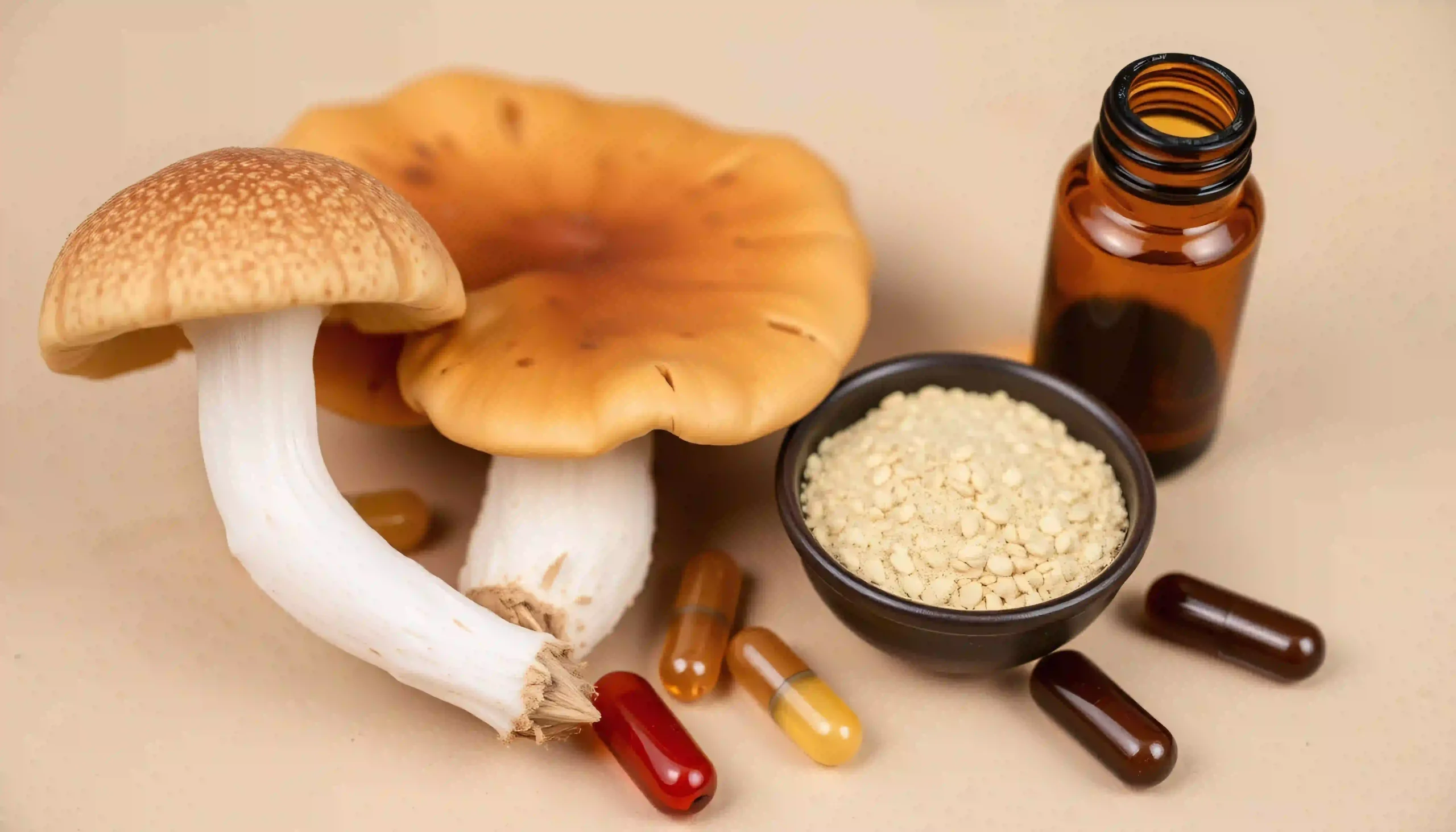Introduction to White Willow Bark
Historical Background and Traditional Uses
For centuries, White Willow Bark has been revered as nature’s aspirin, with its use dating back to ancient civilizations. Your ancestors weren’t wrong about its therapeutic properties – this remarkable bark contains salicin, which your body converts into salicylic acid, a compound similar to the active ingredient in modern aspirin. While comparing white willow bark vs ibuprofen, it’s fascinating to note that this natural remedy laid the foundation for developing synthetic pain relievers.
Scientific Overview of Active Compounds
The power of White Willow Bark lies in its complex mixture of natural compounds. Beyond salicin, you’ll find beneficial flavonoids and polyphenols that work synergistically. Understanding these components helps explain why many people consider natural alternatives when weighing white willow bark vs ibuprofen for their pain management needs.

Understanding White Willow Bark’s Natural Properties
Key Active Components
When you look closely at White Willow Bark’s composition, you’ll discover it’s not just about salicin. The bark contains tannins, flavonoids, and other phenolic glycosides that contribute to its therapeutic effects. These compounds work together, potentially offering benefits that extend beyond what you might expect from a single synthetic compound.
Bioavailability and Absorption
Your body processes White Willow Bark differently than synthetic pain relievers. When comparing white willow bark vs ibuprofen, one key distinction is the conversion process. Your liver transforms salicin into salicylic acid, leading to a gentler onset but potentially longer-lasting effects on your system.
White Willow Bark vs Ibuprofen: Mechanism of Action
How Each Works in the Body
While both substances target pain and inflammation, they do so through slightly different pathways. White Willow Bark works through multiple mechanisms, including inhibiting prostaglandin synthesis and providing antioxidant effects. Its natural complex of compounds may offer a more holistic approach compared to ibuprofen’s focused action on COX enzymes.
Speed and Duration of Effects
One notable difference when comparing white willow bark vs ibuprofen is the onset time. While ibuprofen typically provides faster relief, White Willow Bark may offer a more gradual but sustained effect. This difference stems from the natural conversion process of salicin in your body.
Different Forms and Preparations
White Willow Bark Tea and Its Benefits
White willow bark tea offers a gentle way to experience this natural remedy. When you prepare this traditional beverage, you’re extracting beneficial compounds in a form that’s easy for your body to absorb. Many find that sipping white willow bark tea provides mild pain relief while offering a moment of relaxation in their daily routine.
Tinctures and Other Formulations
For those seeking a more concentrated form, white willow bark tincture provides a convenient option. This liquid extract offers higher potency and faster absorption compared to tea. The tincture format allows you to precisely control your dosage while maintaining the natural synergy of the bark’s compounds.
Primary Health Benefits and Applications
Pain Management Properties
When comparing white willow bark vs ibuprofen for pain management, many users report that White Willow Bark provides effective relief without some of the common digestive concerns associated with NSAIDs. While ibuprofen offers rapid relief, White Willow Bark’s pain-reducing properties tend to build up gradually, potentially offering a gentler approach for those seeking long-term solutions.
Anti-inflammatory Effects
The anti-inflammatory properties of White Willow Bark deserve special attention when considering white willow bark vs ibuprofen alternatives. Research suggests that the natural compounds in White Willow Bark work together to reduce inflammation through multiple pathways, which may explain why some users report more comprehensive relief compared to single-compound medications.
Mental Health Support and Anxiety Relief
Interestingly, white willow bark for anxiety has gained attention in recent years. While more research is needed, some users report feeling calmer when using White Willow Bark, possibly due to its anti-inflammatory effects on neural pathways. When weighing white willow bark vs ibuprofen for stress-related headaches, some users prefer the former for its potentially dual action on both pain and anxiety.
Safety Profile Comparison
Side Effects and Interactions
While comparing white willow bark vs ibuprofen safety profiles, it’s crucial to understand that natural doesn’t always mean safer. Both substances require careful consideration. White Willow Bark may interact with certain medications, particularly blood thinners and other NSAIDs. The advantage of white willow bark tincture and other forms is their typically gentler action on the stomach compared to ibuprofen, though individual responses can vary.
Who Should Avoid Each Option
When deciding between white willow bark vs ibuprofen, certain groups should exercise extra caution. Pregnant women, people with bleeding disorders, or those with salicylate sensitivities should avoid White Willow Bark. Similarly, if you’re preparing white willow bark tea or using other forms, consult your healthcare provider if you have kidney disease, liver problems, or are taking prescription medications.
Cost and Accessibility Analysis
Initial Investment vs Long-term Value
When evaluating your options, consider both immediate and long-term costs. While ibuprofen is generally less expensive and more readily available, White Willow Bark offers various preparation options. White willow bark tincture might seem pricier initially, but its longer-lasting effects could provide better value over time. The cost of regularly preparing white willow bark tea should also factor into your decision-making process.
Market Availability and Quality Considerations
The accessibility of these options varies significantly across different markets. While ibuprofen is standardized and widely available, the quality and potency of White Willow Bark products can vary. When sourcing white willow bark tincture or tea preparations, consider factors like organic certification and sustainable harvesting practices.
Insurance Coverage and Healthcare Integration
It’s worth noting that while ibuprofen is often covered by insurance plans, especially prescription-strength versions, natural supplements like White Willow Bark typically aren’t. However, some flexible spending accounts (FSAs) or health savings accounts (HSAs) might cover these natural alternatives when properly documented.
Duration of Effects and Onset Time
Metabolism and Individual Variations
Understanding the timing differences helps set realistic expectations. While ibuprofen typically shows effects within 30-60 minutes, White Willow Bark’s natural conversion process means you might wait 1-2 hours to feel relief. However, many users report longer-lasting benefits once the effects begin. When choosing between white willow bark vs ibuprofen for chronic conditions, this extended duration could be advantageous.
Time of Day Considerations
The timing of when you take either option can significantly impact their effectiveness. White willow bark tea, for instance, might be more beneficial when taken in the morning for day-long coverage, while ibuprofen might be better suited for acute, sudden pain relief needs.
Building Tolerance and Long-term Efficacy
One important consideration is how your body responds to these substances over time. Some users report developing less tolerance to White Willow Bark compared to ibuprofen, though more research is needed in this area. The natural compounds in white willow bark tincture and other preparations might offer more sustainable long-term use patterns.

Natural vs Synthetic: Making an Informed Choice
Environmental Impact and Sustainability
In the ongoing discussion of white willow bark vs ibuprofen, it’s essential to understand that both options have their place in modern pain management. Consider the environmental impact of your choice – while White Willow Bark is a renewable resource, the production process for ibuprofen has a larger industrial footprint. The sustainable harvesting of White Willow Bark involves carefully stripping the bark without harming the tree, allowing it to regenerate. In contrast, ibuprofen production requires significant chemical processing and energy consumption, potentially contributing to environmental concerns.
Integration with Holistic Health Practices
While ibuprofen offers predictable, standardized dosing, White Willow Bark provides a more holistic approach. Many users who regularly prepare white willow bark tea report appreciating the ritual and natural aspects of their pain management routine. This integration into broader wellness practices can enhance overall health outcomes. When comparing white willow bark vs ibuprofen in the context of holistic health, many practitioners emphasize how natural remedies can support the body’s innate healing processes rather than simply masking symptoms.
Cultural and Traditional Medicine Perspectives
Different cultural traditions have varying views on natural versus synthetic medicines. Understanding these perspectives can help you make a more informed choice that aligns with your personal values and beliefs about health and healing. Many traditional medicine systems have documented the use of White Willow Bark for centuries, suggesting its enduring value in human healthcare. These historical practices often emphasize the importance of using whole plant materials rather than isolated compounds, believing that the complete spectrum of natural components works together more effectively than single synthetic molecules.
Usage Guidelines and Best Practices
Optimal Timing and Frequency
When comparing white willow bark vs ibuprofen timing strategies, remember that natural remedies often require more patience. Start with white willow bark tincture or tea in the morning for chronic conditions, as the effects take longer to manifest but may last throughout the day. For acute pain, while ibuprofen might be your faster option, white willow bark vs ibuprofen considerations should include your individual response time and sensitivity.
Combining with Other Supplements
While evaluating white willow bark vs ibuprofen combinations with other supplements, exercise caution. White willow bark for anxiety may be safely combined with certain calming herbs, but always consult healthcare providers before mixing supplements. Some users find that white willow bark tea pairs well with other anti-inflammatory herbs for enhanced benefits.
FAQs About White Willow Bark and Ibuprofen
Q: How does White Willow Bark compare to ibuprofen for headache relief?
A: When comparing white willow bark vs ibuprofen for headaches, White Willow Bark typically takes longer to work but may provide longer-lasting relief. Some users report fewer rebound headaches with White Willow Bark.
Q: Can I take White Willow Bark daily?
A: Daily use requires careful consideration. While some people safely use white willow bark tea or tinctures regularly, consult your healthcare provider for personalized advice, especially if you have underlying health conditions.
Q: What’s the best form of White Willow Bark for beginners?
A: Many beginners start with white willow bark tea as it’s gentler and easier to control the dosage. White willow bark tincture might be more convenient but typically provides stronger effects.
Q: Is White Willow Bark safer than ibuprofen?
A: Safety depends on individual factors. Both substances carry risks and benefits. When comparing white willow bark vs ibuprofen safety profiles, consider that natural doesn’t automatically mean safer.
Conclusion: Making the Right Choice for Your Needs
Your decision between White Willow Bark and ibuprofen should align with your specific needs and circumstances. Consider factors like onset time, duration of relief needed, and your body’s response to each option. If you’re drawn to natural alternatives and don’t need immediate pain relief, exploring white willow bark tea or tincture might be worthwhile. Remember that white willow bark for anxiety and pain management might offer benefits beyond what synthetic options provide, but always approach any new supplement with careful consideration and professional guidance.
The choice between white willow bark vs ibuprofen isn’t about declaring one superior to the other, but rather about finding what works best for your unique situation. Whether you choose the traditional wisdom of White Willow Bark or the modern reliability of ibuprofen, ensure your decision is informed by both research and personal health factors.



